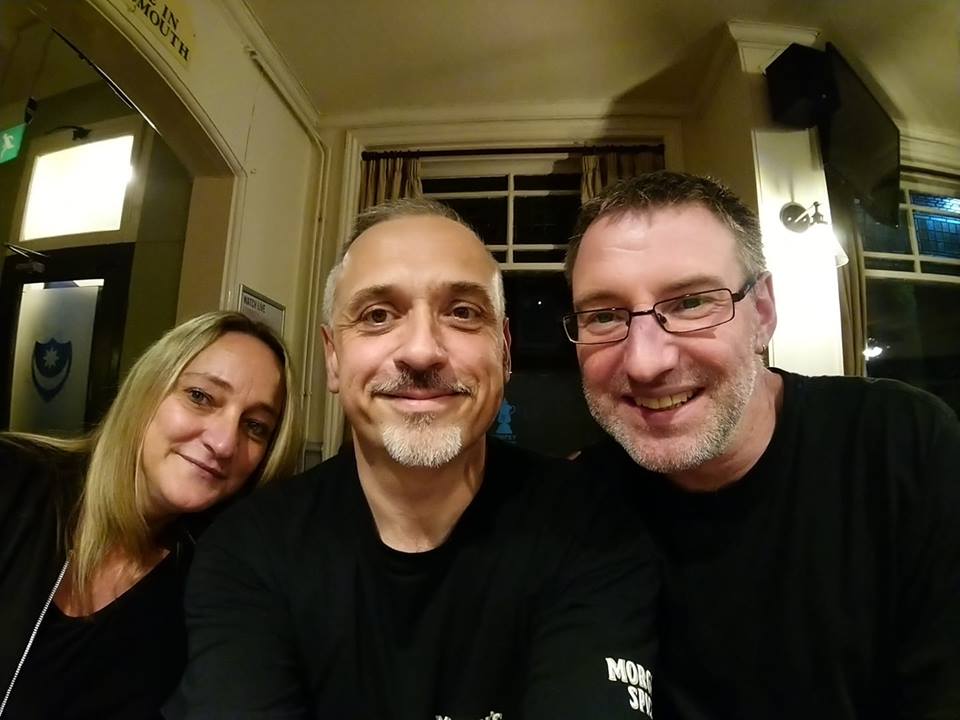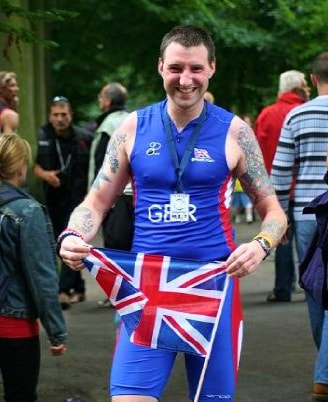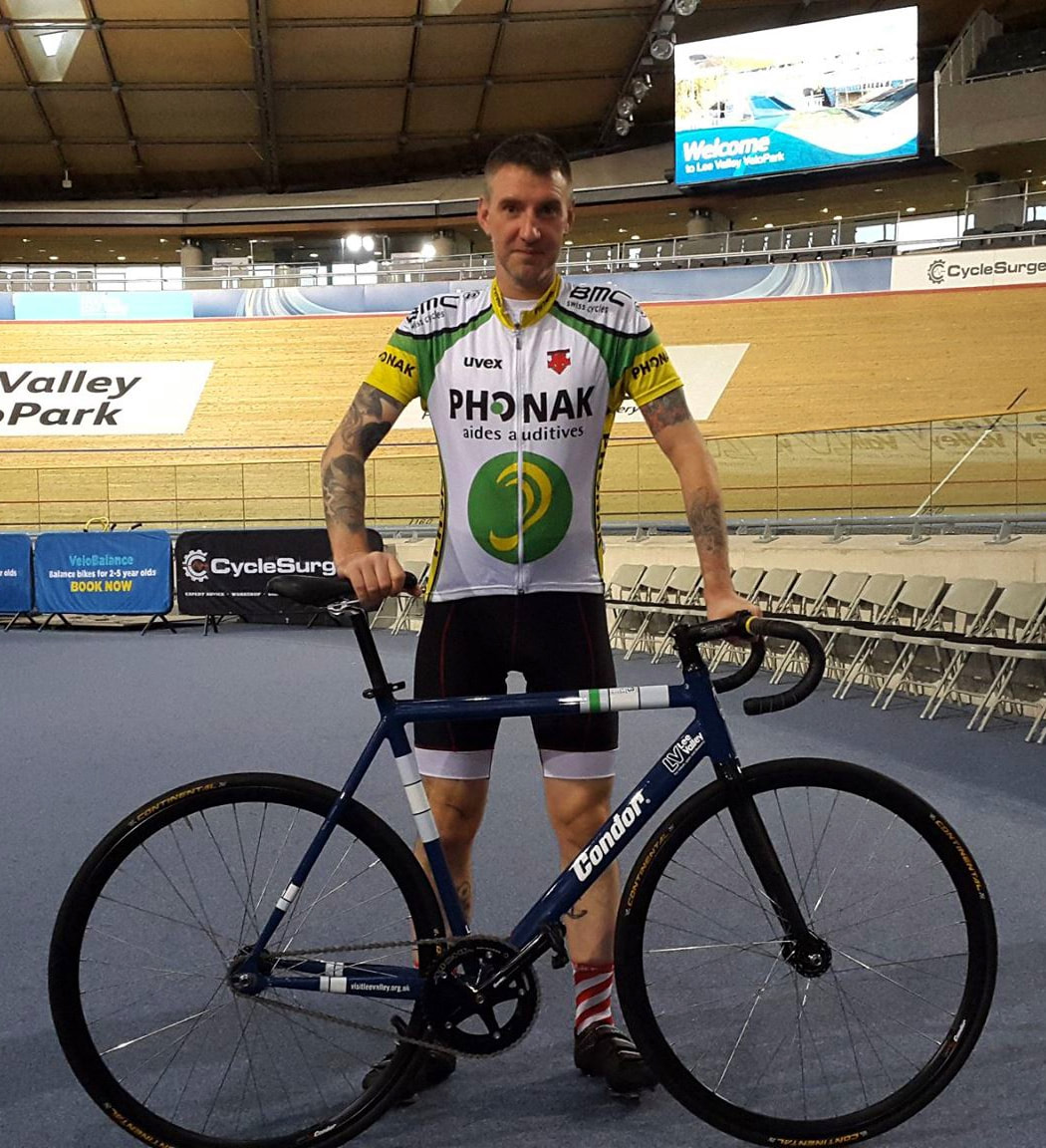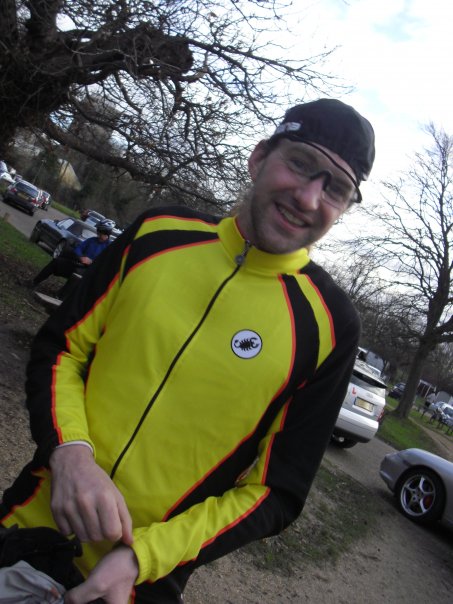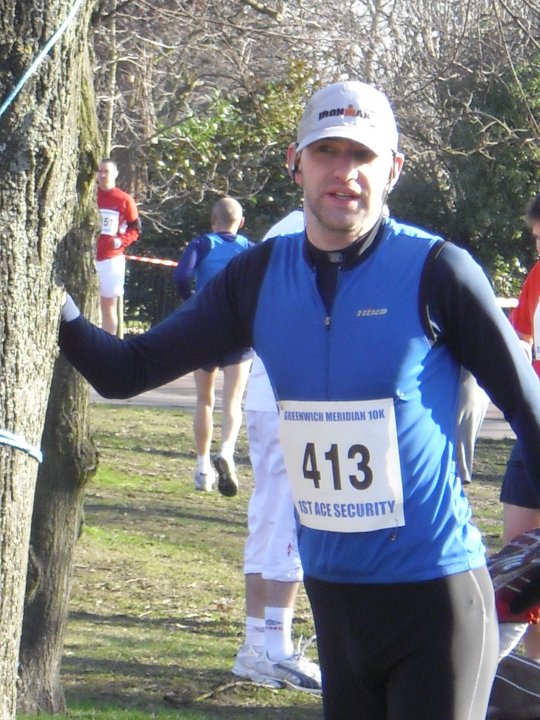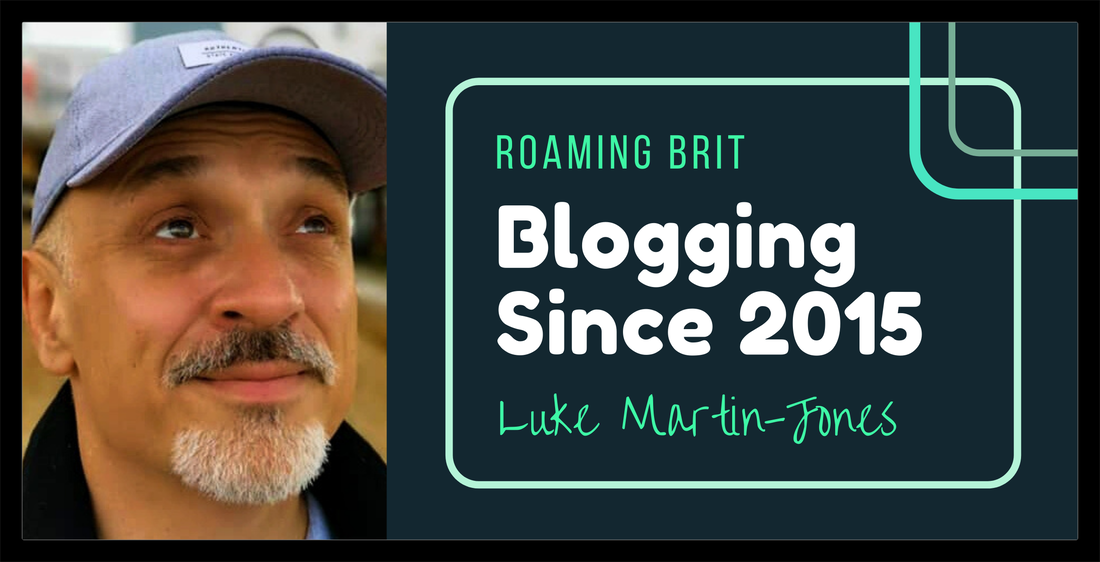|
I’ve had time to do some really important reflection since completing the Serpent Trail 50k Ultra, and it has been important, as it has given me that opportunity to look at what went well with the training and the event, as well as what I can do differently next time. Yes, that is right, next time. I’m going back next year to do the event again, but more about that in a moment. My main objective on the day was to get to the finish line. I didn’t really have a ‘set in stone’ time that I wanted to finish it in. In terms of meeting that objective, I did it, but there is something niggling away at me that says I could have gone quicker. I felt my training for the event was consistent and pretty much spot on. I just need to refine it a bit. I did no other events or races in the build up, and it was the first event I’d done for quite a few years. I’ve got two events coming up before the end of the year that I am now focusing on – the Great South Run and the Portsmouth Coastal Marathon. I’m back into training again having taken a few days off and have been doing those runs at a slightly quicker pace. I need to start adding in some focused tempo runs and some speed work now. The plan for next year, in terms of events, is to complete the Jubilee 70k in June and then a month later return to the Serpent Trail 50k. Initially I thought it was a total no-go and that I wouldn’t recover in time. I gave it a lot of thought and came to the conclusion that I have around a year to train for both events, I have a good base endurance already, I know I can complete a 50k course, and I want to use both events as a fundraiser for a couple of local charities. It is ambitious, but more than achievable. I’m taking the learning from this year's event and really refining my training and plan for the event. I felt I took far too much nutrition and fluid with me, so will make sure next year I’m taking enough to get me to the checkpoints/aid-stations and top up at each. Obviously, focusing on some speed work will hopefully lead to running at a faster pace and will help get me around quicker. I’m also planning on doing some training runs on parts of the route for the Serpent Trail, so I am covering some of the hillier parts of the course quicker – I feel I lost a lot of time on those sections this year. I also need to move through the checkpoints quicker. I believe that I can knock an hour off my finishing time and will have that in mind now with each and every training session. I’ve got around a year to really fine-tune everything and get back to the start line fired up and ready to go again. I’m currently looking at some early season events as well, and I am toying with the idea of some trail half-marathons in the build up. I’ll use those events as fast training sessions and an opportunity to work on some of the more technical aspects of trail running. By the end of this month, I would have run over 700 miles so far this year, which is amazing. By the end of the year, I should be close to 1,200 miles – I would never have imagined that at the start of the year. I’m still planning on doing the longer runs still, I’ll need to for the marathon at the end of this year and I want to maintain that high endurance work rather than having to start that build up at the start of next year. In training over the last few months, 20 miles runs became the norm and I actually enjoy them, so I’ll be doing plenty more before the end of the year. I actually find I’m much more motivated with the longer distance runs than the shorter ones. So one ultra under my belt already and time to start training for the next two – bring it on 😊
0 Comments
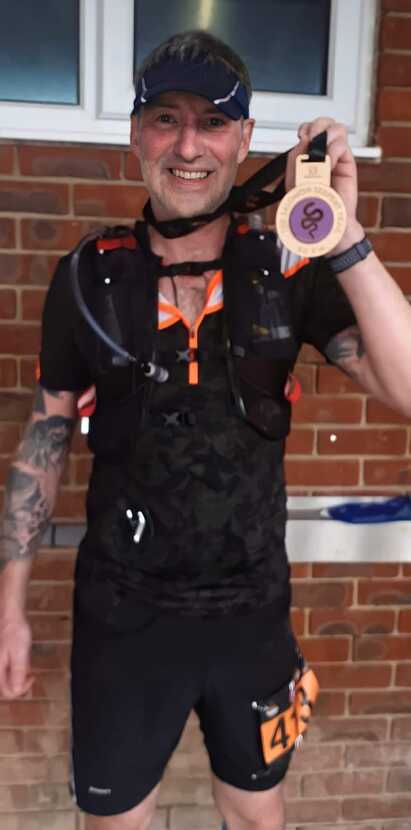 As I write this blog post, my legs are still aching and my feet are still blistered. Most importantly though, I’m still smiling, and the post-race pain is worth it. On Saturday, I completed the Serpent Trail 50k ultra. It was my first attempt at completing an ultra-marathon and the first endurance event I had done for quite a few years. I had one expectation going into the event – get to the finish line. The week leading up to the event hadn’t got off to the best of starts as I damaged my left foot and, on the start-line, it was still bruised and sore. My race vest felt fairly heavy as I had the mandatory kit plus nutrition as well as 3 litres of energy drink and water. I was fully aware going into the event that this was going to be tough, and I would need to dig deep, both physically and mentally. The weather leading up to the event hadn’t been ideal, and much of the course was really muddy. The course was stunning. I don’t think I’ve run on a course as varied in terrain or tougher than that. It was hilly as well, and my strategy was to walk some of the hills to converse energy and take on nutrition. The start was quite congested in the first couple of miles and being on single track it was difficult to pass other runners in places. I also managed to go off course within the first couple of miles – I was flying down a hill and missed one of the course direction signs and only realised when I got to the bottom of the hill with another runner closely behind me that I was off course. Not great, having to run back up hill to get back on course. Several miles later I managed to go off course again for around 150 metres after misreading a direction sign. I decided I needed to pay more attention for the rest of course. About halfway through the trails became a bit clearer which was ideal, and I managed to get a good rhythm going, but this was soon broken by muddier sections and more hills. 20 miles in and I was feeling good, feeling positive, and feeling focused on getting to the finish line. I was moving through the checkpoints as quickly as possible after refuelling and topping up my water bottles. The weather was strange. When we started, it was raining, but it was also muggy and humid. The sun did break out a couple of times, but then it also rained again – the joys of racing in the English summer, I guess. Around mile 26 was the last checkpoint, another packet of salt and vinegar crisps, an energy gel, plenty of water and headed off again. Up and down hills and only 3 miles to the next aid station. Mile 29 and I hit the last water stop on route still smiling and still laughing and joking with the volunteers and marshals. Only 2 miles left and it felt like the longest 2 miles I’ve ever run in my life – it seemed more like 10 miles if I’m being honest. With 1 mile to go I tried to urge my legs to pick the pace up a bit and as painful as it felt they did respond……….just! Through another woodland trail and then suddenly a left turn and I could see the finish line. I picked the pace again, it felt like I was sprinting, though in reality I was probably shuffling along. Crossing that finishing line felt amazing. I felt shattered, and my legs felt painful. It was worth it though. So after months of training, I achieved my goal and feel pretty pleased with the effort that I put in. I also learnt quite a lot during the event – about myself and what I would do differently in future. My head is saying do some more ultras and my legs are in total disagreement - I’m sure that’ll change very soon. The plan is to build on the training I’ve done and do a few shorter distance events (Great South Run (10miles) and Portsmouth Coastal Marathon (26.2miles)) and then build up to a 70km next June and hopefully a return a month later to the Serpent Trail 50k and a quicker time (mud permitting!). So many months of training are now completed. The early mornings, training in all weathers, running longer training distances than I’ve ever covered for an event before. It is all completed now and the next time I run will be at the Serpent Trail 50k. I’ve run over 600 miles in my training this year in preparation – I’ve never run that far in a calendar year before, let alone 6 months! The start of the week presented me with a major challenge. I managed to stub three of the toes on my left foot quite heavily early on Monday morning and feared that I may have broken one of my toes, they were bruised and there was some swelling as well. For months, I’d been careful in my preparation and recovery to avoid injury, and one slight accident less than a week before the event could easily have thrown everything away. Had this been any other event I would have skipped my last couple of training runs, but this is different. Monday morning I headed out for a 6-mile run to see what the impact was. Thankfully it wasn’t as bad as I thought and although it felt painful at times it was manageable – that was a relief. Tuesday I went out for another 6-mile run. The foot still felt painful, but it was manageable. Thursday was the last run before the event and I did 8 miles at what was supposed to be an easy pace, but I was feeling good so picked it up a little and the foot felt much better – a couple of twinges but more of a slight ache than anything painful. So apart from the damage to my left foot the training has gone well. I’m feeling strong, I’m feeling both mentally and physically prepared, and most importantly I feel ready. I know that whatever challenges the event throws at me, I will be able to overcome them. I’ve made sure that some of my longer training runs have been over tougher terrain than the event. I’ve done my research into many aspects of ultra-running; nutrition, mental preparation, kit, and recovery. Years ago when I spoke to people that competed in ultra-running events, I admired them but thought it wasn’t for me. I had a change of mindset a couple of years ago (about the time when I first started this blog) and decided to enter an event. I didn’t make it to the start line for multiple reasons – the main one being at the time my head and heart wasn’t fully committed to it. It has bugged me since, and now I have an opportunity to put those bugs and that disappointment in myself well and truly behind me. I’ve found over the last 6 months when I have been fully committed to training for this event that my mindset has changed dramatically. When I started this blog a few years ago I wasn’t in a happy place, I didn’t like myself, I was frustrated with myself, and I had no goals that I was aiming for. Now I’m determined, stronger, and know if I push myself further than I think I can go I can achieve so much more. It feels good. Getting to the start line has been a major positive, crossing that finish line will be cathartic, but won’t be the finish. It will be a new beginning. I know that these events are tough both physically and mentally and require huge efforts of endurance – that is why I am drawn to them. I think getting across the finish line and resting on my laurels and saying I’ve ticked that box, I’m done with it would be a huge waste. I know that I’m going to be tired and aching at the finish line and the following days and those inevitable words – ‘never again’ – may be muttered but the tiredness and aching muscles will pass and the thrill of completing the event will override this and thoughts of what next, could I do it again but a bit quicker, could I go further, could I do a tougher course? And it starts again, those months of training, those early mornings, the planning, the physical and mental preparation and getting to that point where I can say I’m ready for this. That is a massive change from when I first started this blog, and with time and belief anything is possible if you want it enough. 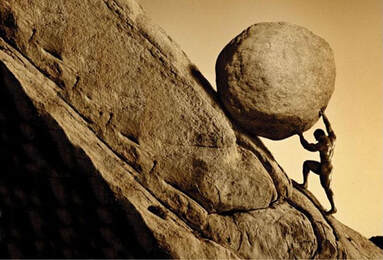 I’ve completed some decent training over the last couple of weeks and am pleased with the progress that I have been making. The previous Saturday was another run of just over 20 miles. I’m getting used to running this distance now and feel comfortable doing so. So far this year I’ve completed 6 runs of over 20 miles and I know that there are plenty more to come. This Saturday I ran 27.08 miles – that is my longest training run of the year. Actually, that is my longest training run ever. I’ve trained for marathons in the past and completed 9 of them so far – I’ve never gone beyond the marathon distance in training or an event. Saturday provided me with the ideal opportunity to push beyond my usual limits. I decided on a route that would challenge me both physically and mentally – a good mixture of road and woodland trails with plenty of hills. The weather was hot, and I knew this would add to the challenge. By going beyond my usual training distances, I knew that this was going to require both patience and determination to complete it. One thing I have learnt this year about ultra-running is it is OK to walk short sections rather than run, it means conserving energy and gives an opportunity to take on nutrition as well. I’ve also learnt a lot about pacing runs properly – this isn’t like training for a marathon, and I would never run the full marathon distance in training usually. I was also honest with myself about my expectations – this isn’t about hitting certain times, it is about being able to move forwards at all times. I feel having realistic expectations is important. I hit a bit of a mental dip at around mile 18 for a couple of minutes, but I soon managed to switch those emotions off – there was absolutely nothing I could do to change the situation and I told myself that this is what needs to be done so keep moving forwards, just concentrate on each step and nothing else. The mental dip didn’t last long. I’m resilient and brutally honest about my abilities. I’m also extremely stubborn at times and don’t give up easily. These are the traits I need when the going gets tough. I know that I need to become comfortable being uncomfortable – both mentally and physically. The key is to be able to switch off and accept that things are tough, not to quit, not to break, to be able to keep moving forwards when it feels painful and muscles are screaming at me to stop. The remaining miles became easier – the terrain was still tough and hilly – because I was just focused on moving forwards and nothing else mattered. I had got to a place both physically and mentally where I felt fatigued, but knew I could keep going. It felt like I could keep going forever. The more I was pushing beyond my limits the more I felt comfortable. When I finished the run, I looked at myself in the mirror – I saw someone who looked different, there was something different in the way I looked that went beyond fatigue. It was like I had opened a door within myself and revealed something stronger, tougher, and limitless. Prior to the run I had envisaged that physically my legs would be shot to pieces and ache for days – in the past when I’ve trained for and run marathons walking downstairs backwards becomes the norm (those who know, know) but nothing. As I reflect on the run I know I got to a place I had been searching for in training for months (maybe years) and I can’t wait to get back there again. 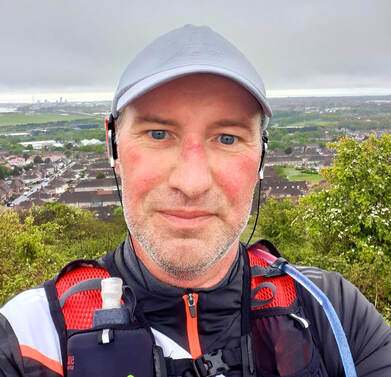 It was quite shocking to read that 21 runners lost their lives competing in a 100 km ultra-marathon in China over the weekend. High winds and freezing rain hit part of the course and many of those competing developed hypothermia, others got lost due to poor visibility in the mountains. I’ve read some reports that said many runners started the event without adequate equipment or kit (whether this would have made any difference at all is debatable). I wonder if the event organisers had stipulated that competitors take minimum kit required (for example, water-proof jacket, foil blanket, first aid kit). In many events this is a requirement and if you don’t have it you are not allowed to take part (and in some events the kit also checked at aid-stations/checkpoints). Endurance events are tough. The distances covered, the training required, the physical demands and the mental demands are there to challenge all who wish to take part in them. One of the ways I’ve changed my approach to training this year is to really focus on the mental aspect. As the training distances and weekly mileage have increased, the mental aspect becomes more important. The mind gives up much quicker than the body does. I’ve started focused a lot more on being present and being 'in the moment.' I’m not worrying about how I’ve run or how far I have left – I don’t have a great deal of influence over either of those factors. Instead, I’m just fully focused on the next 5-10 metres and moving forwards quickly. Fatigue is certainly a factor on those longer runs, but that is the purpose of those long runs, to fight that fatigue and get stronger. It has taken months of carefully planned training and preparation to get to that stage. There are also going to be times when the fatigue really kicks in, my quad muscles are screaming at me to either slow down or stop. This is where being 'in the moment' really comes to the fore. I know that endurance events are tough. I know that training for and competing in endurance events, means that there are going to be mental highs and lows. The key is how you manage them. It is quite easy when feeling good to push the pace a bit more but at what cost later on? When having a mental low it is quite easy to stop or quit but the pain of quitting days after the event is going to be a lot worse. Those mental lows can be caused by multiple factors – fatigue and tiredness, low energy levels, the terrain and the weather can also add to the suffering of trying to cover the distance. Many of these I have very little influence over. What I do have influence over is how I deal with them – recognising my emotional reaction, accepting it, and letting go of it. Focusing on it will only increase the duration of those negative emotions. Today I put this into practice to my advantage. I did a 19.2-mile training run. I started it in the middle of a downpour and was soaked through in minutes; oh well. I didn’t think about the distance I needed to cover and the time it would take and having to do this in wet kit. Instead, I just focused on putting one foot in front of the other. Later in the run, on the return, (around 13 miles) the heavens opened again, with the added bonus of hail as well. I just kept moving forward, focusing on the next 5-10 metres. It wasn’t the greatest conditions I’ve ever trained in and being on a very exposed part of the route with a strong relentless headwind made it that bit tougher. I accepted it for what it was and just focused on moving forwards. I’d originally scheduled in to run 18 miles today but went on for another mile just because. My quad muscles were fatiguing, but that is the point of training long distances; to be able to push that bit further. A part of me enjoys training when the conditions are not favourable. I enjoy that aspect of working towards being comfortable in the uncomfortable. I enjoy pushing my physical and mental endurance to see how I overcome issues and challenges that arise, how emotionally react and how I deal with it. Less than 6 weeks of training left now, and I’m looking forward to this event.  Is sport as diverse as it can be and is it a level playing field (no pun intended) for all who participate? It is an interesting question and something I’ve been reflecting on after watching a few TedTalks and some of the reading I’ve been doing recently. If we look at running as an example, men and women at a professional or elite level don’t compete together within the events they participate in. I looked at the world records for some of the track events – the current world record for the men’s 100 m is 9.58 seconds, whereas the women’s record is 10.49 seconds (that time would not have gained a qualification to the men’s 100 m final at the last Olympic Games in Rio). The figures and differences follow a similar trend as you look at 200 m, 400 m, 800 m, and so on. Where this trends starts to drift is at marathon distance and beyond. There was no official women’s marathon at the Olympic Games until 1984!!!! Women had competed occasionally, but it wasn’t fully recognised. It wasn’t until the late 1960’s that women were permitted to run in marathons as elite athletes. This is staggering really as the evidence suggests that women are able to compete with men on an almost equal footing when the distances increase. I did a presentation in work about 6 years ago as part of a course on the cyclist Beryl Burton (“Who?” you are probably thinking – and no one attending the course had heard of her either). Beryl Burton was a phenomenal athlete who held multiple national records in an amateur career that spanned 4 decades as well as winning multiple national and world titles. The most remarkable title she held was the national 12-hour time trial championship in 1967 where she rode 277.25miles. She beat all the men taking part and held the national record (for both men and women – the women’s record stood until 2017!!!!!!) I’m still of the opinion that had women been able to compete in track cycling at the Olympic Games whilst Burton was still riding she would be our most decorated Olympian – however, very few people outside of cycling have ever heard of her. Within Ultra-distance running women are not only competing but are also winning events outright. Pam Reed won the Badwater Ultra in 2002 (this is considered to be one of the toughest footraces on the planet – 135miles through Death Valley!!) beating the first man home by over 4 hours and 30 minutes. It wasn’t a fluke either because the following year she repeated this by beating the first man to finish by 25 minutes (and that man was Dean Karnazes – one of the best male ultra-runners in the world!). Mimi Anderson has also won multiple races outright as have multiple other female ultra-runners, but very rarely do we hear about it. Jasmin Paris made national headlines and received much media coverage in 2019 after winning the 2019 Spine Race (268miles along the Pennine Way). There have been multiple studies and much research into why women are able to compete almost equally with men at ultra-endurance events – physiology and how the body uses fuel, pain threshold differences, mental strength, and ego-check (men are more likely to go at a much faster at the start and suffer for it later). Interestingly, when looking at separate race divisions for male and female competitors the organiser of the Big’s Backyard Ultra (Gary Cantrell (aka Lazarus Lake) – the creator of the infamously tough Barkley Marathons – a race so tough that only 18 runners have completed the full course since 1986!!!!) decided to scrap the separate male and female divisions – in 2019 a woman won the event overall. Outside ultra-running very few athletes get the media coverage they sometimes deserve for their achievements – now imagine if a woman was to win a mixed 100 m final at the Olympics and the media coverage that would receive. Imagine how inspiring and empowering that would be, especially for younger female athletes. I think it is a shame when we are looking at equality and role-modelling in sport that it is not as balanced as it could be and creating that environment where participation should be based upon ability and not gender. Saturday was another long run; 20.2 miles and it was made that little more challenging by the weather. Rain and a very strong breeze. It was good to get the session done in those conditions as I must really focus on why I’m out there. It can be easy to pick the pace up when you are being pushed by a strong tailwind, however caution is required as that tailwind will be a headwind on the return, and this requires even more patience and energy. If you’re spent at the halfway point, then it is going to be a world of pain on the return. I’ve reached that part of my training schedule where nothing but total focus is needed. I can’t and won’t take my foot off the gas now. I’ve spent months training to get to this point and I just need to keep this going for another couple of months. I’ve reached that part of my training schedule where the long runs are becoming the norm. Between now and the Serpent Trail 50k I have 4 more runs of over 20 miles to complete plus another 2 of 18 miles. In between those longer runs I have the normal runs I do of around 6-12 miles. I have another 23 runs sessions to complete. The mileage is really starting to ramp up now. This is the stage of the training I’ve been looking forward to. This is the stage of the training where I need to work the hardest and focus the most. This is the stage of the training where it gets tough, and I know I will need to dig deep at times to keep moving forwards. I enjoy that part of training. It is when you reach that point where your mind is telling you to quit, where your mind is telling you your body is aching and in pain and the way to stop that is to quit or rest. This is when the training gets interesting, and I know if I can endure those sessions then I have that focus to complete the ultra. Total focus and nothing else. I’m not really paying much attention to the outside world at present and don’t feel I need to. I’m busy in work, I’m busy with study, I’m busy with some other work-related projects, I spend a lot of time reading (I’ve already read 20 books this year), occasionally I’ll watch a film or a documentary on ultra-running, and the rest of the time is taken up with training or recovering from training. Both the preparation for training and recovery are vitally important. My diet has changed this year, and I’m more aware of the food that I eat needs to give me the fuel I need to complete the sessions as well as recover from them. There are foods I’ve completely cut out of my diet and foods that I am eating a lot more. I’ve realised the importance of adding in core work to supplement my training and I think this has been beneficial, especially on the longer run sessions. I’ve got just under 8 weeks to go until I stand on the start line for the Serpent Trail 50k ultra. I know that by giving it my total focus, like I have done since I started training for the event, for the next 8 weeks I will be ready to give it everything I have, both physically and mentally to cross that finish line. I will have the miles in my legs and know I have done the training required, I will have my nutrition plan correct, I will have the belief that I’m good enough to be taking part, I will have the belief that nothing along that trail will stop me getting to that finish line, I will have the belief that I can overcome any negative self-dialogue that tells me I’m not strong enough, I will know that I will have total focus and nothing less. 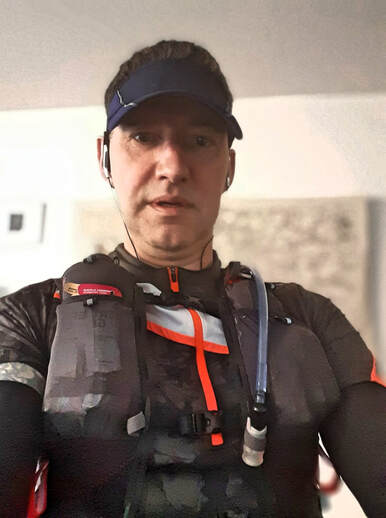 What is success? I reflected on this question over the weekend. It is hard to define success, and it is subjective to what you are trying to achieve. How we individually view success is very subjective as well. Some define success in terms of acquisition and material possessions. Others define success in terms of status and wealth. Some may define success as the outcome of a target or goal they are working towards. I looked at some of the goals and targets I am working towards this year and re-evaluated them in terms of what is success. Did merely ticking them all off mean that I’ve had a successful year? I looked at my training for the ultra and looked at whether it had been a success or not. I really broke this down into much smaller components. Firstly, I had identified something I wanted to achieve – finish an ultra-marathon. It has been something I’ve wanted to do for a number of years and despite a few previous unsuccessful attempts I feel that I’ve got my act together this year and because of the training and commitment I’ve put in I am going to achieve that goal. Has the training been a success so far though? I’ve completed every session I’ve scheduled in this year (at the time of writing that is 98 training sessions). This is two-fold though – the planning can be a success but not necessarily the execution of that plan. I’ve spent time building up the distance and time so that every session is working towards building the endurance I need to finish the ultra. At the weekend I did another long run (21.1 miles) and in terms of that session it was a success – my pace was consistent, the kit I used was suited to the purpose and worked really well, my nutrition was correct, and my focus was exceptional. I can’t pin-point one area of that session that did not go to plan. Compared to the previous weeks long run it was a much better run – whereas the previous week the last 3 miles were a slog this week I felt strong in the last 3 miles. I was mentally prepared for hitting a mental dip in places and knew how to overcome this and knew that physically I was able to move forwards. But there is going to be a huge difference from finishing a 21.1mile training run and finishing a 31-mile event. Therefore, the sessions will get longer and the parameters of success will change – sometimes it isn’t just about the physical element or distance covered but the mental element as well – that ability to shut out the negative inner dialogue, to carry on when the mind is saying stop. It got me thinking about what will I deem as being a success on the day of the ultra in just over 2 months’ time. Is just crossing the finish line going to be a success? In terms of achieving the overall goal it is, but other elements will also come into play. I’ve not got a specific time I’m aiming for – at present that is a bit of an unknown, and I’m only just scratching the surface in terms of distance. I’ll have a much better idea in the coming month as I work towards a long run training run of 26-28 miles. Success on the day will also need to factor in how I handle things not going to plan and how I overcome these challenges. I know there is a good chance I will have an existential crisis during the event asking myself - Why the hell I’m doing this? What am I trying to prove? Why did I think this was a good idea? Being able to overcome my mental demons will be key to success. Success will be sticking rigidly to my nutrition plan and fuelling properly before the event and during the event. Success will be standing on that start line, knowing I’ve done everything I needed to do to make sure that 31 miles later I am crossing that finish line, that I have done all the training required. There will be a certain amount of satisfaction in crossing that finish line and how I answer those questions of what I define as success will hopefully have been answered along the way. Having completed in many, many endurance events over the years I know that after the event in the coming days and weeks many questions will arise – could I have done things differently? Could I have gone quicker? Could I find a different event with a more challenging terrain? Could I do a longer distance - 50 miles? 100km? 100miles? Then the measurement of success changes yet again. One thing I am learning is that the measurement of success isn’t always about achieving the goal or the target but the learning that takes place on the way to achieving it. I completed a run of just over 20 miles on Saturday. It has been quite a few years since I’ve done that distance. It was good despite the last 3 miles being a bit of a slog and I had to dig deep a few times to keep going. I didn’t give up, felt motivated, and was fully focused on getting that distance completed. It got me to thinking about why I enjoy endurance sports and where that interest comes from. I saw my Mum on Sunday, and she had found some old photos for me (some of which I had forgotten about) – some of those may answer the question of why I enjoy endurance events. I did my first triathlon 25 years ago. Back then very few people took part in the sport and my training was very much trial and error. Back then the internet didn’t exist, so my main points of reference were a book I had bought about triathlon (which wasn’t a huge help) and a few copies of Triathlon magazine (not a great deal of help either as it focused on what races some of the elite had done and what was happening in the USA). I trained for a few months and just hoped for the best on the day. Looking at those photos on Sunday made me realise that my interest in endurance sports developed years before. There is one photo of me when I’m about 10 years of age having just finished a cross-country fun-run with my first finishers medal around my neck. My Dad was into cycling and as a teenager I did a few charity rides with him – usually around 50-60 miles (which is a decent distance for a 14-year-old to ride. And looking at one of those photos and how skinny my legs look (!!!) I’m somewhat shocked I was able to ride those distances at that age). This led to being interested in races like the Tour de France (years before Britain even had a winner of the event – just having a British rider on the start line was a huge deal back then). At school I played football, rugby, (hated cricket), and swam. I was OK, nothing exceptional. Outside of school I canoed for a little while (as part of my Duke of Edinburgh bronze award). I tried out a few other sports as well – again nothing really stuck in terms of wanting to participate long term. I went on a couple of outward bounds trips with the school to the Lake District and for a kid growing up in London that was a real eye-opener. The open space, the hills, the vastness of the place, and the sense of achievement making it up some of the mountains. I remember going to watch the first ever London Marathon with my Nan in 1981. We stood outside Embankment station cheering and clapping the runners on, and I remember saying to my Nan that I would run a marathon one day (and probably didn’t realise what was involved, it just looked pretty cool to me). I never joined any cycling or athletics clubs as a kid and at school there was never really that interest or encouragement from teachers to pursue any sports outside of school. I remember watching various sports programmes as a kid and that is where some of that interest really developed – city centre cycling shown on Channel Four, very brief highlights (2-5 minutes) of the Ironman in Hawaii, the Olympic Games in Moscow and Los Angeles (1980 and 1984). When I was growing up there was a bloke who lived on the same estate who was a long distance runner and as kids we thought he was Superman!!!! We'd see him run off and then hours later (whilst we were still playing football and hitting windows he'd return, and we'd be amazed at how far he'd run!) All of those things have contributed in a small way to the journey I have been on in terms of endurance sports. All of those things have had a lasting influence on this journey. There have been times when I’ve not entered events for a couple of years and just trained with no end goal or main purpose – but something has always drawn me back into finding an event, entering it, putting in the training, completing it and moving onto the next goal. When I completed my first triathlon 25 years ago I wanted to see what else I could achieve and over the years went from short distance events to much longer distance events. When I completed my first marathon in 1998, once my legs had recovered, I wanted to see if I could get quicker over the distance. I remember speaking to people that took part in ultra-marathons (and also reading a few books about the sport) thinking that is unbelievable and not for me, way too far. I think deep down I’ve always looked to push myself on my terms on what I can achieve. Taking part in endurance sports allows me to do that, and it has been an incredible journey and one where I have learnt a lot about myself. Pushing myself out of my comfort zone and seeing what is beyond that – both physically and mentally. I look at that photo of me as a 10-year-old with that finishers' medal around my neck and wonder if someone told me then that in 40 years’ time I would be training to run 50 km what my reaction would have been. Every time I think that the journey is complete there has always been something else that has drawn me back in, motivated me, fuelled that curiosity, made me wonder ‘what if’, and given me another goal to work towards.  Saturday provided me another opportunity for a long run, and it was a 15-mile session with a decent amount of off-road terrain. I’m enjoying the long runs, even more so when they are off-road. The long runs are providing me that opportunity to test out kit (this week was my new trail running shoes – perfect) and nutrition (again worked well, combination of energy drink, gels, and salt-chews to make sure my electrolytes are in balance). Another way that the long runs help is with focus and this week I found that to be a lot sharper. I’d done some work for my external study (more on that in a bit) on mindfulness and ‘being in the moment’. I had a rough idea of the distance I wanted to cover on Saturday and the route. I just focused on what was in front of me there and then. I didn’t focus on the miles I’d just done or the miles ahead of me either (neither of which I can have any amount of influence over). Instead, I just concentrated on the there and then, nothing else. I think that it is vitally important to put this type of training into practice in the build up to the ultra. Like the physical aspect, like getting my nutrition spot on, and like using the correct kit if my head and focus are in the right place that is going to count for a lot. I’ve watched a few documentaries recently on ultra-distancing running and one of the things that is constantly mentioned is the mental aspect – having your head in the right place throughout. And these athletes are racing some very tough events (Badwater 135, Barkley Marathons, Hardrock 100, and Western States 100), much tougher than the 50k ultra I’m training for but that mental aspect is of the same importance. The more I can focus, in training, on 'being in the moment,' the more beneficial it is going to be on the day. I’m covering the miles I need to do in training but if my focus and belief is not there then those miles count for nothing because when the going gets tough the focus will not be 'in the moment,' the 'there and then,' it will be on the miles I have ahead of me (and I can’t do a thing about that), it will be on things I can’t control, it will be those niggling little doubts. There was another plus point that happened in the week as well – 12 week review with my tutor for my external study. I’d submitted around 6 pieces of work which hadn’t been marked or signed off just prior to the meeting. I was a slightly concerned and didn’t fancy the prospect of spending a few evenings making changes, rewriting parts and having to resubmit the work. There were also some doubts around whether I was good enough to be doing the study in the first place (again the imposter syndrome rearing its head to put those doubts in my mind once more). The meeting went well. I’m ahead of schedule, the quality of my work is outstanding, I am showing a great understanding of the subject matter and how I am applying it. If anything, I’m doing work that I’m not evidencing, and I was told to include this as well. It was quite a relief but also highlighted that those self-doubts are still there but more importantly when I knuckle down what I can achieve. I don’t always give myself enough credit for what I have and do achieve (I tend to focus more on what else I can do, what more needs to be done, or my personal favourite of what more I could have done – and this is almost belittling my achievements). This was highlighted during the week when I was giving someone some advice on different aspects of run training – I didn’t think a great deal about it in the grand scheme of things and gave some advice based on personal experience over the years, what has worked well and what hasn’t, and a few other observations. I also wondered why they were asking me – and someone told me (because I don’t see it myself). I have a wealth of knowledge and experience of training for and competing in endurance events. Most people would be happy with finishing one marathon, I’ve finished 9 (and am planning to do a few more), most people would be happy to finish one triathlon, I’ve finished more than I care to remember including 4 Ironman distance and also raced for Great Britain. I don’t tend to place on a lot of emphasis on what I have achieved, the emphasis seems to be what I want to achieve or what I could have done better. I remember over the years seeking advice from people with much more experience and knowledge of training and racing and being in awe of what they had achieved. Maybe, just maybe I’m now in that position myself? |
AuthorRichard Guy, 47 years of age, born and grew up in London and have lived in Portsmouth since 2017. Archives
August 2021
Categories
All
|














 RSS Feed
RSS Feed

